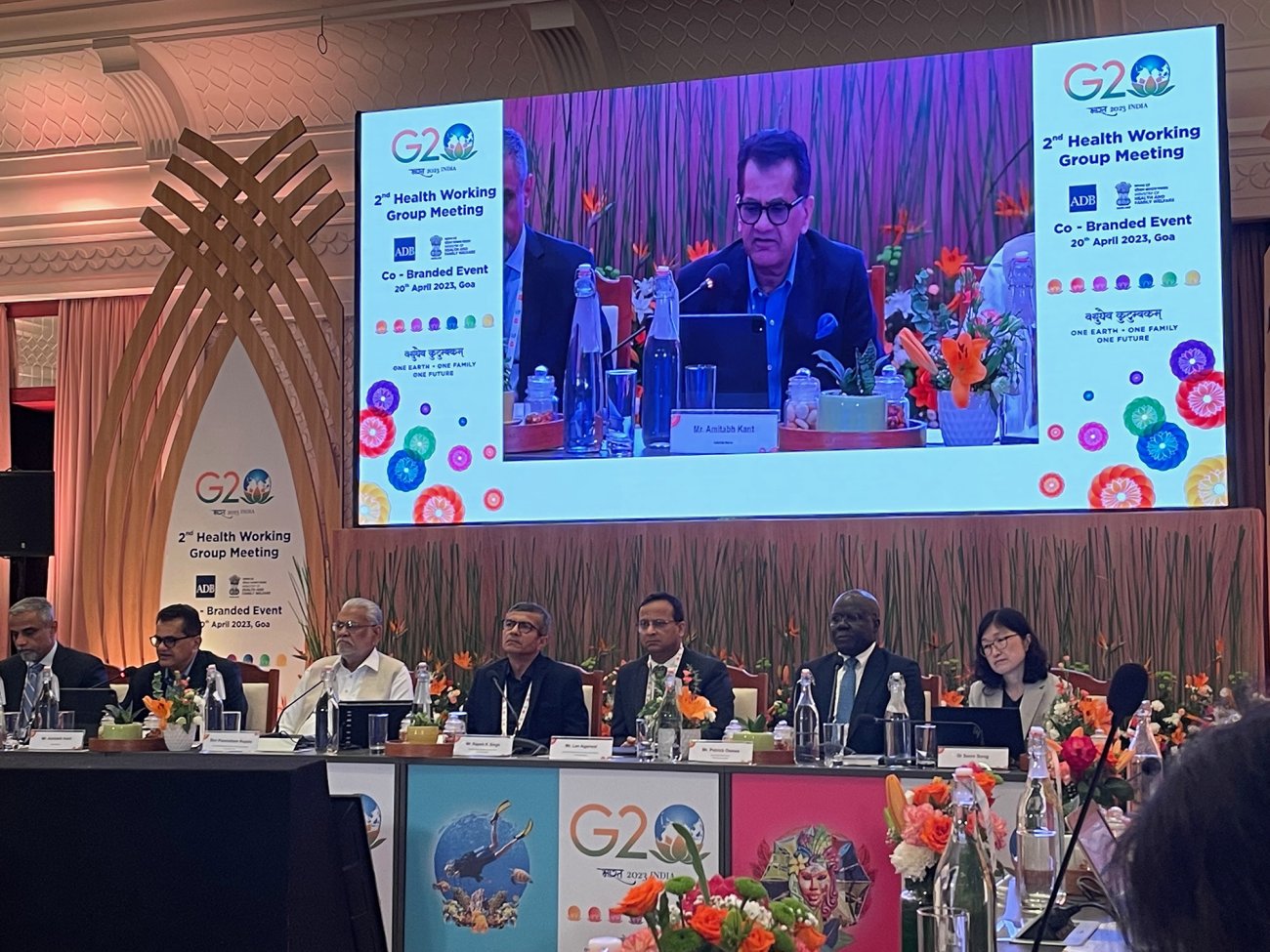India: The Public Health Foundation of India (PHFI) - a Health Care Without Harm partner - serves as the Centre of Excellence for Green, Climate Resilient Health Care for the national Ministry of Health and Family Welfare. In this capacity, PHFI is supporting the development of a national plan and state level policies.
Indonesia: Between 2022-2023, Health Care Without Harm worked in partnership with the Ministry of Health of the Republic of Indonesia as well as the Provincial Government of Jakarta to conduct a series of training on the Climate Impact Checkup Tool with public and private health facilities in the country. Plans to scale up this initiative are underway.
Timor-Leste: With support from the WHO country office, Health Care Without Harm supported the Ministry of Health of Timor-Leste in developing its Climate-Resilient and Environmentally-Sustainable Health Care Facilities Policy and Strategy. This project has two specific objectives: assess the climate vulnerability and sustainability of select health facilities in Timor-Leste; and propose strategic policy recommendations for the implementation of climate-resilient and environmentally sustainable health care in the country.
Thailand: Through the Green and Innovative Finance Initiative for Scaling Up Southeast Asian Infrastructure Project of the Asian Development Bank, Health Care Without Harm supported the Ministry of Public Health in assessing the baseline climate vulnerability of five of its medical excellence centers. This project also aims to support the Ministry in training and building the capacity of health care professionals on climate change adaptation and disaster risk resilience in the sector.
Philippines: In partnership with the Philippine Department of Health (DOH), Health Care Without Harm led a capacity development training session on calculating GHG emissions using the Climate Impact Checkup Tool with all of its regional offices, centers for health development, and selected public health facilities. Following this, Health Care Without Harm will work with the DOH in integrating the calculator into their existing Green Viability Assessment (GVA) tool, incorporating GHG emissions reduction into the performance standards of all public health facilities in the country.
Malaysia: In collaboration with Sunway Centre for Planetary Health (SCPH) and the National University of Singapore’s Centre for Sustainable Medicine (CoSM), Health Care Without Harm is leading a series of workshops on health care decarbonization with the Ministry of Health of Malaysia. These workshops support the operationalization of MOH’s recently published blueprint for health care facilities which aims to provide safe, green, and future-proof facilities through the principles and pillars of sustainability.
Health Care Without Harm Europe is working with two additional national health authorities to develop net zero decarbonization roadmaps for their health care systems through Operation Zero. With the continued support of project partners Arup, this second phase builds on a successful collaboration with Portugal, the Netherlands, and the Lazio region in Italy in 2022. Read Portugal’s national health care decarbonization roadmap here.
Designing a net zero roadmap for healthcare sets out a step-by-step process for establishing a decarbonization roadmap for health care systems that is aligned with the principles of the Paris Agreement, including how to calculate a carbon footprint, model emissions trajectories, and develop the appropriate governance structures to support the process.
Health Care Without Harm Europe’s new partnership with Belgium and Ireland will make use of this methodology to support these health authorities in generating their own detailed climate footprint analyses and decarbonization roadmaps. This second phase will help refine the methodology and ensure it is applicable to health systems across Europe and beyond.
Colombia: In 2022, the Ministry of Health and Social Protection and Health Care Without Harm signed a memorandum of understanding to work together to estimate the climate footprint of the Colombian national health system at the facility level.
The project had three main components: identifying a sample of hospitals and health centers in the Colombian health system, training health institutions in the sample to use the Climate Impact Checkup GHG calculator, and supporting institutions in gatherings and reporting their data to determine the size and composition of their climate footprint.
Based on the findings, Health Care Without Harm produced a series of specific recommendations to help develop a Comprehensive Sectoral Climate Change Management Plan (PIGCCS) for the Colombian health sector.
Other countries: Health Care Without Harm has partnered with government institutions in Peru, Mexico, and Chile to conduct training for groups of public health facilities on the use of the Climate Impact Checkup tool and carbon footprint baselining.
South Africa: The National Department of Health has convened a National Climate and Health Steering Committee. The first meeting took place on the 23rd of March and Terms of Reference are being finalized with the establishment of the committee. In addition; an Air Quality Forum is also convened by the National Department of Health to address air quality in the Highveld Priority Area. Health Care Without Harm’s strategic partner in Africa, groundWork, is working closely with the Environmental Health team on both of these. The National Department of Health visited several Global Green Healthy Hospital members across South Africa to engage in their sustainability work.
United States: On Earth Day 2022, the U.S. Department of Health and Human Services (HHS) launched the Health Sector Climate Pledge, a voluntary commitment to climate resilience and emissions reduction that includes cutting greenhouse gas emissions by 50% by 2030 and achieving net-zero emissions by 2050. Health Care Without Harm has been encouraging its health system partners in the United States to join this pledge, while also helping them to meet the pledge commitments.
Since the introduction of the pledge, more than 135 U.S. health care organizations representing more than 940 hospitals have signed the pledge, a large majority of which are in the Practice Greenhealth network. Additionally, more than 200 federal hospitals and health facilities in the United States are committed to decarbonizing their buildings, following an Executive Order for all federal facilities to reduce their emissions by 50% by 2030 and achieve net-zero emissions by 2050.
In August 2022, the Inflation Reduction Act (IRA) was passed, the U.S. government’s largest investment in climate action to date, comprising over $369 billion in federal programs and tax incentives to decarbonize the U.S. economy. The IRA has the potential to significantly reduce the financial barriers for health systems to procure low-carbon energy alternatives by providing substantial incentives, especially in the form of tax credits that encourage health care organizations to decarbonize and build climate resilience.
The U.S Department of Health and Human Services Office of Climate Change and Health Equity (OCCHE) is providing a growing set of resources and information to help health systems both meet the Health Sector Climate Pledge as well as access IRA incentives.

